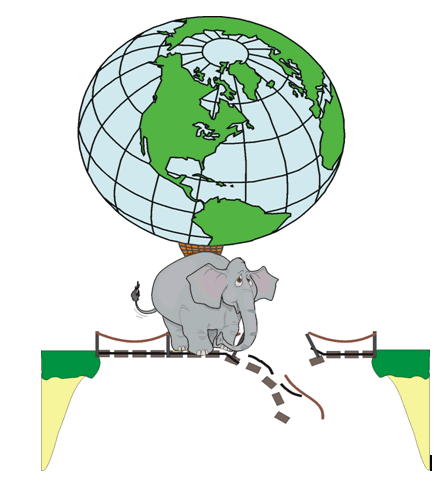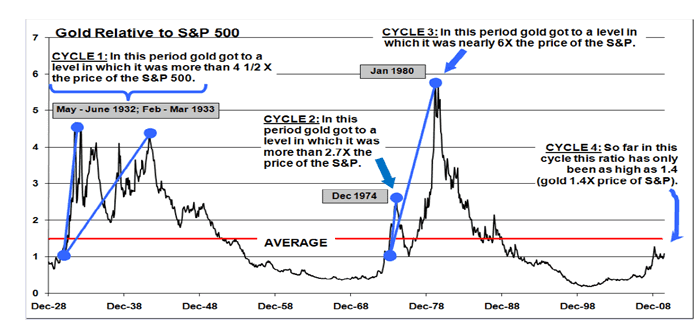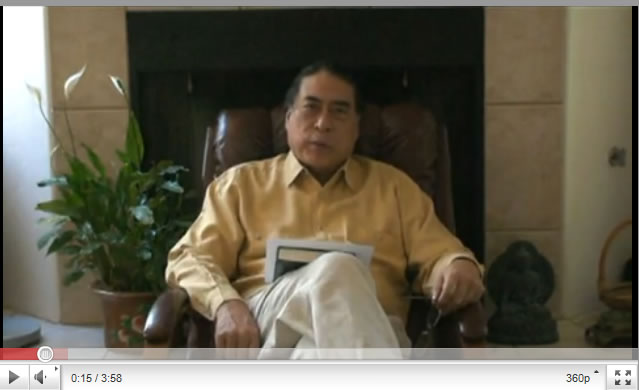The Central Banker’s Dilemma How To Ride A Dying Debt Saddled Elephant
Interest-Rates / Global Debt Crisis Jun 03, 2010 - 03:39 AM GMTBy: Darryl_R_Schoon
 Economics isn’t rocket science. It’s common sense and economists don’t have any.
Economics isn’t rocket science. It’s common sense and economists don’t have any.
Bankers have a problem and because they do, so do we. In modern economies, bankers have two roles. As central bankers, overseers of the financial system, they are charged with maintaining economic order. As investment bankers, i.e. opportunistic predators, they profit from whatever opportunity presents itself. In the US, the former have now succumbed to the latter.
The system is dying. That much is evident. What is not evident is why it happened. In the long run, it may not be important. In the short run, it may not be important either as we are only observers, not those whose policies determine what will be. How the problem arose is less important than that it is fatal.
The idea that central bankers are independent is no more realistic than believing our political leaders are independent. Politicians –except for the very few—are captive to their own ambitions and to the special interests that allow them to parade on the public stage feeding their vanity and our sense of control. It’s a stage, however, that is about to collapse on everyone.

The eurozone crisis is only one of the many crises yet to come. The cost of the last two centuries is becoming obvious. The heady rush of scientific inquiry has produced hubris as well as truth and we are unable to tell the difference. What we do know is that we have gone too far.
The oil leak in the Gulf of Mexico is a case in point. The vast amount of global debt—sovereign, corporate, and consumer—is another. Having gone too far we don’t know what to do; and we have the disquieting feeling that neither does BP nor Ben Bernanke.
We are entering a period of deep change. The abrupt re-appearance of systemic risk in May is the wake-up call for the April fools who believed the financial crisis was over, that credit-driven prosperity would return with only more credit, that debt could be rolled forward ad infinitum, and that mankind, thank GOD, was once again in control of its destiny.
There is a great deal of difference between affecting destiny and controlling it.
If you don’t know the difference, don’t worry. You will.
THE END-GAME: STAGE II
There is a symmetry to life for those who notice. Those who expected the world to end in 2000 were disappointed. The world didn’t end but it did change. The end-game predicted by Morgan Stanley’s Stephen Roach began in March 2000 with the collapse of the dot.com bubble; and, while the end-game is underway, it isn’t yet over. It will be soon enough.
Modern economics is simple. The substitution of credit and debt for money produced debt; and as long as that debt could be serviced and/or paid down, everything was fine. The problems came when it couldn’t.
Today, credit can no longer contain debt. We are past the tipping point and it is clear where we are headed—all of us. The East (except for Japan which is even more indebted) is less indebted only because it entered the game later. Time is the only differentiating factor; and, given enough time, there will be no difference.
Debt is a two-edge sword with no handle
WHAT NEXT?
On April 14th, the Icelandic volcano, Eyjafjallajokul, violently erupted, disrupting air travel over Europe and the UK. Six days later, on April 20th, a BP deepwater drilling platform exploded, gushing oil into the Gulf Mexico causing what will be greatest environmental disaster in US history; and, in May, the Greek debt crisis exploded bringing into question the future of the euro and, indeed, Europe. What will June bring?
Gold is believed to be an inflation hedge and although inflation has been contained for the past ten years, the price of gold has quintupled. This is because gold is not just an inflation hedge, gold is a chaos hedge.
Gold’s continuing and inexorable rise is sign that the end-game is still in motion. Volatility and uncertainty are back and so is a rising price of gold. This will continue until the end-game is over; only then gold will reach its peak—at a price far higher than today.
The following chart shows the price of gold relative to the S&P. When gold finally peaks the ratio will exceed even that reached in 1980. The cause will be a devastating deflationary depression in combination with a cataclysmic monetary crisis.
When that happens, the gold/S&P ratio will explode upwards, exceeding past spikes and will not revert to previous lows. Instead, the price of gold will settle into a golden plateau until a new more stable currency regime arises.

http://www.ritholtz.com/blog/2010/05/gold-relative-to-sp500-1928-2010/
When that happens, physical gold, not paper gold, will be wealth’s safe haven. Paper gold will prove be have been but a false shelter erected by bankers hoping to divert gold’s rise into the paper assets they control. GLD, the gold ETF, is a case in point as is SLV. My Youtube video explains why, see
WHAT TO DO?
The handwriting is on the wall. Read it.
Buy gold, buy silver, have faith.
By Darryl Robert Schoon
www.survivethecrisis.com
www.drschoon.com
blog www.posdev.net
About Darryl Robert Schoon
In college, I majored in political science with a focus on East Asia (B.A. University of California at Davis, 1966). My in-depth study of economics did not occur until much later.
In the 1990s, I became curious about the Great Depression and in the course of my study, I realized that most of my preconceptions about money and the economy were just that - preconceptions. I, like most others, did not really understand the nature of money and the economy. Now, I have some insights and answers about these critical matters.
In October 2005, Marshall Thurber, a close friend from law school convened The Positive Deviant Network (the PDN), a group of individuals whom Marshall believed to be "out-of-the-box" thinkers and I was asked to join. The PDN became a major catalyst in my writings on economic issues.
When I discovered others in the PDN shared my concerns about the US economy, I began writing down my thoughts. In March 2007 I presented my findings to the Positive Deviant Network in the form of an in-depth 148- page analysis, " How to Survive the Crisis and Prosper In The Process. "
The reception to my presentation, though controversial, generated a significant amount of interest; and in May 2007, "How To Survive The Crisis And Prosper In The Process" was made available at www.survivethecrisis.com and I began writing articles on economic issues.
The interest in the book and my writings has been gratifying. During its first two months, www.survivethecrisis.com was accessed by over 10,000 viewers from 93 countries. Clearly, we had struck a chord and www.drschoon.com , has been created to address this interest.
Darryl R Schoon Archive |
© 2005-2022 http://www.MarketOracle.co.uk - The Market Oracle is a FREE Daily Financial Markets Analysis & Forecasting online publication.




